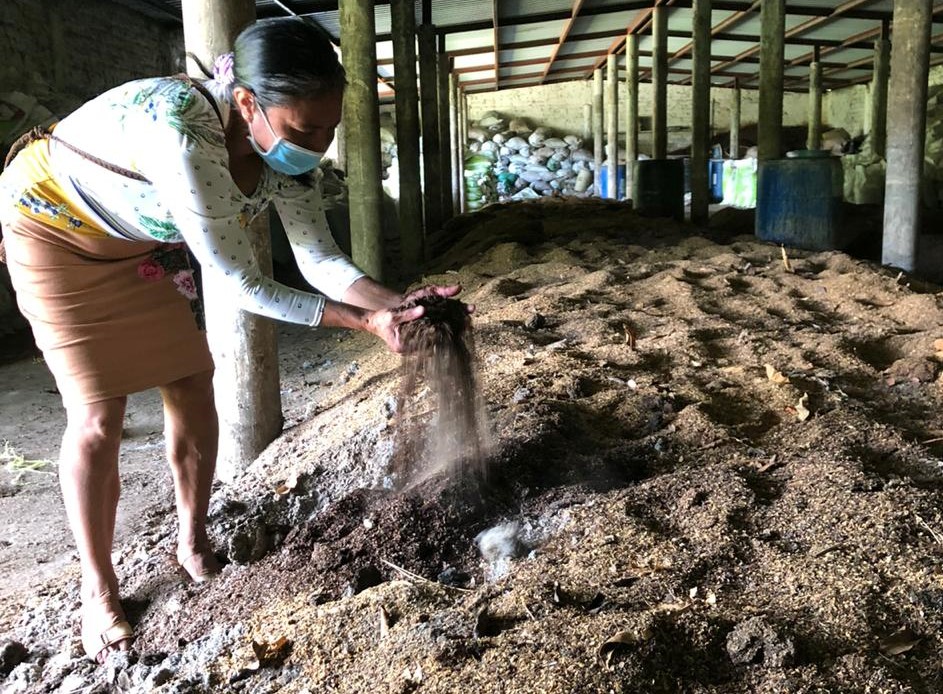Despite the limitations imposed by the Covid-19 pandemic, technical specialists have assisted producers in identifying farm needs and preparing their own fertilizer.

San Salvador, 26 August 2020 (IICA). – With a view to assisting coffee farmers in implementing more economically and environmentally sustainable production models, the Central American Program for Integrated Coffee Rust Management (PROCAGICA) is providing technical assistance and training on agro-ecological alternatives.
Among the beneficiaries is Asociación Cooperativa Las Marías 93 de R.L. of the municipality of Chinameca, in the department of San Miguel, El Salvador, which is known for implementing organic practices on its coffee plantations.
The program has provided technical assistance and inputs to enable farmers themselves to produce Bocashi-type fertilizer, which provides nutrients naturally.
“PROCAGICA has provided various training sessions to teach participants how to prepare the fertilizer, which, compared to other fertilizers, takes less time to prepare and is very beneficial for soil. Furthermore, it does not require a significant economic investment, given that it is prepared using natural elements that decompose easily”, explained producer María Cecilia Amaya, who has benefited from the training sessions.
Despite the limitations imposed by the Covid-19 pandemic, technical specialists have assisted producers in identifying farm needs and preparing their own fertilizer.
“By consistently applying the organic fertilizer, you can achieve progressive improvements and begin to reduce the use of chemical fertilizers and the adverse effects they have on crops”, remarked producer Felipe Domínguez, who is the president of the Asociación Cooperativa Las Marías 93 cooperative.
“Many consumers find it interesting that organic fertilizer has been used on our coffee plantations; it adds value to our products. A lot of consumers prefer environmentally friendly, innovative products with their own identity”, concluded Domínguez.
Implemented by the Inter-American Institute for Cooperation on Agriculture (IICA) in collaboration with the European Union, PROCAGICA seeks to improve the living conditions of rural communities in the coffee producing areas of Central America and the Dominican Republic.
More information:
Institutional Communication Division
comunicacion.institucional@iica.int











